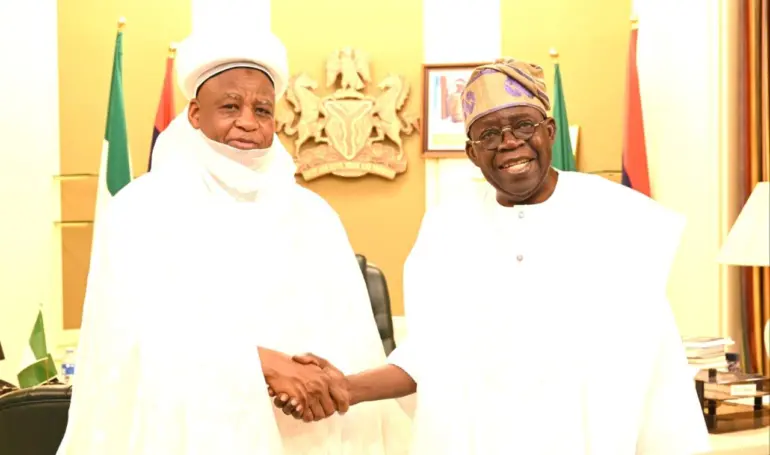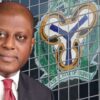As international debate intensifies over alleged attacks against Christians in Nigeria, President Bola Tinubu on Friday met with the Sultan of Sokoto, Sa’ad Abubakar III, at the Presidential Villa, Abuja.
The Sultan, who also serves as President-General of the Nigerian Supreme Council for Islamic Affairs (NSCIA), is regarded as the spiritual leader of the country’s Muslim community.
Also present at the closed-door meeting were the Speaker of the House of Representatives, Abbas Tajudeen, and the National Security Adviser, Nuhu Ribadu. The specific agenda of the talks was not disclosed as of the time of filing this report.
The meeting comes days after President Tinubu received the Catholic Archbishop of Abuja, Most Rev. Ignatius Kaigama, at the Villa — another engagement widely seen as part of efforts to foster religious harmony amid heightened global scrutiny.
The latest controversy stems from comments by US President Donald Trump, who accused the Nigerian government of complicity in alleged genocidal attacks against Christians. Trump also threatened possible military action targeting terrorist groups such as Boko Haram, ISWAP, and armed bandits operating in the North-West and North-Central regions.
Washington has previously listed Nigeria among countries of “particular concern” over alleged violations of religious freedom — a designation that Nigerian authorities have strongly rejected.
After Tuesday’s Federal Executive Council meeting, the Minister of Information and National Orientation, Mohammed Idris, described the US claims as “false and unfounded,” insisting that the Tinubu administration upholds the constitutional right of every Nigerian to practice their faith freely.
He acknowledged that insecurity remains a serious challenge but maintained that the government is making determined efforts to address it.
At the same meeting, President Tinubu reaffirmed his commitment to working with global partners to defeat terrorism and strengthen national unity, saying Nigeria remains on course for economic recovery and sustainable growth despite its current security and political pressures.


